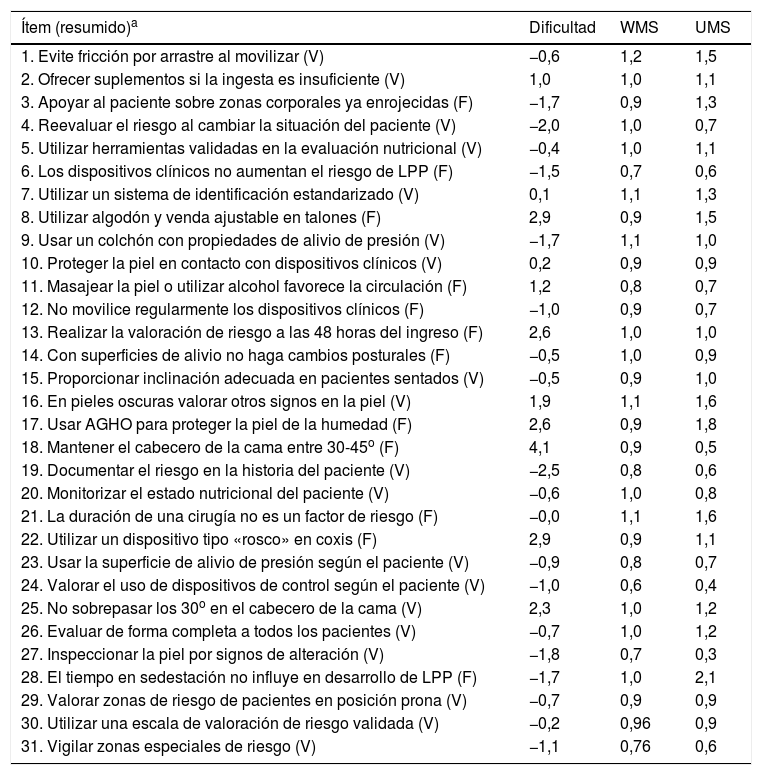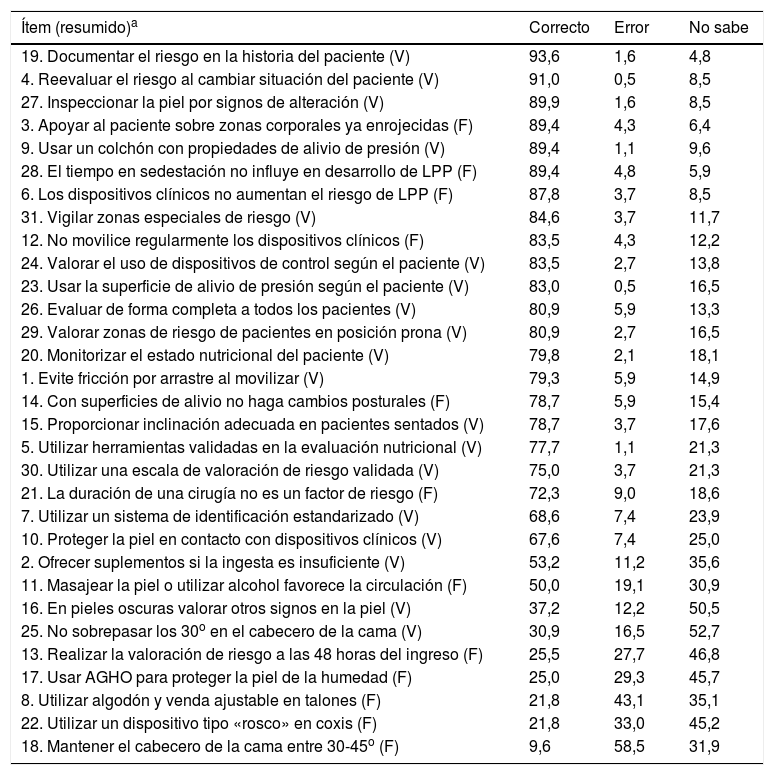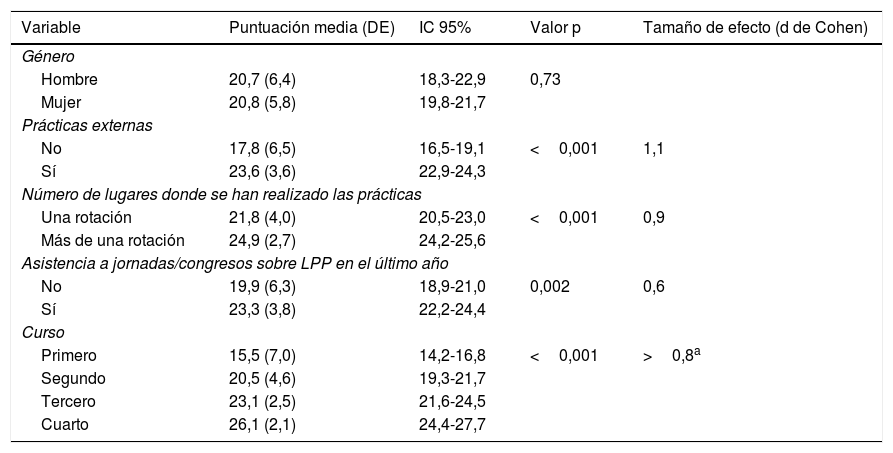Medir el conocimiento de los estudiantes de enfermería de la Universidad de Jaén hacia las pautas basadas en la evidencia para la prevención de las lesiones por presión.
MétodoEstudio observacional transversal de validación de un cuestionario utilizando un formulario online con estudiantes de enfermería de la Universidad de Jaén. Se invitó a participar a todos los matriculados en los 4 cursos. Se evaluaron las propiedades psicométricas del cuestionario «Conocimientos sobre prevención de lesiones por presión» (PIPK) mediante un análisis de Rasch. Se calcularon porcentajes de respuestas correctas y errores para cada ítem, puntuación total y su asociación con variables formativas.
ResultadosEl cuestionario PIPK mostró adecuadas características psicométricas (alfa=0,89) y buen ajuste del modelo de Rasch. La puntuación media de conocimientos fue de 21,0 (67,7% del máximo). Obtuvieron mayores puntuaciones aquellos estudiantes que habían realizado prácticas clínicas, más periodos de prácticas, habían asistido a jornadas específicas sobre lesiones por presión o estaban matriculados en cursos superiores.
ConclusionesEl cuestionario PIPK es un instrumento válido y fiable para medir los conocimientos de los estudiantes de enfermería hacia la prevención de lesiones por presión. Los estudiantes de enfermería de la Universidad de Jaén obtuvieron una puntuación de conocimientos hacia la prevención de las lesiones por presión superior al 50%.
The aim of our study is to measure the knowledge of nursing students at the University of Jaén about evidence-based recommendation for the prevention of pressure injuries.
MethodA cross-sectional observational and validation study was carried in 2019, using an online survey. All the students registered on the Nursing Degree programme of the University of Jaén were invited to participate. The psychometric properties of the Pressure Injury Prevention Knowledge questionnaire (PIPK) were tested by a Rasch analysis. With the analysis, the percentage of correct and wrong answers was calculated, the global score and the association with some educational variables.
ResultsThe PIPK questionnaire showed adequate psychometric characteristics (alpha=.89) and good fit to the Rasch model. The average knowledge score on pressure injury prevention obtained was 21.0 (this is 67.7% of the maximum). Higher scores were obtained by the students that had finished some clinical placements; those with more placements; had attended a meeting about pressure injuries and those in a higher year of the programme.
ConclusionsThe PIPK questionnaire is a valid and reliable instrument for measuring the knowledge of nursing students about pressure injuries prevention. The nursing students of the University of Jaén obtained a score in the questionnaire higher than 50%.











